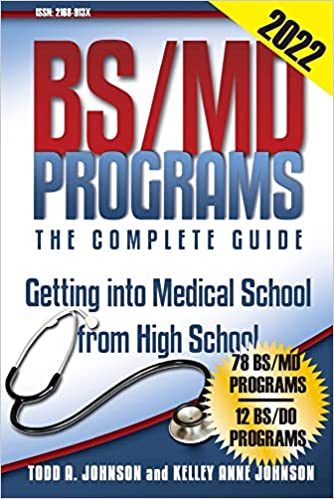BS/MD. BA/MD. Early Assurance. Early Medical School Acceptance Program. College of Medicine Early Acceptance Program. And so on…

For simplicity sake I refer to almost all guaranteed medical programs as BS/MD. Does the name of a program really make any difference? Not really. What gets confusing, particularly if you aren’t dealing with these programs every day like we are, is that what one program calls itself may be a guaranteed medical school program while another school, with a very similar name, is not a guaranteed program.
How can you tell the difference? It can be challenging. I generally define a BS/MD program as one where the student applies from high school and, if accepted into the program, will have a medical school seat waiting for them once they complete the requirements of the program. Does that mean they don’t have to do anything during college to get the seat at the medical school? NO. Every program has some type of requirements for students such as volunteering, research, doctor shadowing, minimum grades or MCAT scores.
However, if the admittance to the medical school is conditional on something else like another interview at the medical school, I don’t generally consider that a true BS/MD program. Let’s take the program at St. Louis University as an example. Their program admits students directly from high school. Students have certain requirements to fulfill in the first two years such as research and volunteering. But at the end of the sophomore year, the medical school will then interview the student to decide whether to admit them to the medical school. That is not a true BS/MD program. That is an early assurance program.
I spend many hours each year reviewing the various option to make a judgement call on whether a college is a BS/MD program or not. Sometimes it can be a close call. A few programs require an interview at the medical school before the student is officially accepted. Normally I would not call that a BS/MD program. But if the interview is just a formality and virtually all of the students in the program get into the medical school, I may consider it a BS/MD program.
The good news is that all of the programs that I consider true BS/MD programs are listed in the appendix of the most recent copy of our book. If the program isn’t listed, chances are it was lacking some form of a guarantee into the medical school.
I have also learned to use the formal name of the program whenever talking to the college or medical school about that program. That can eliminate discussions about whether the program is guaranteed or not.
If you come across a program that looks or sounds like a BS/MD program to you, but isn’t listed in the book’s appendix, let me know the name of the program and the associated college and medical school. In most past cases, it involved a program that wasn’t a true guaranteed program. But no one is perfect. I may have missed a program and need to include them in the next book.
Leave a Comment